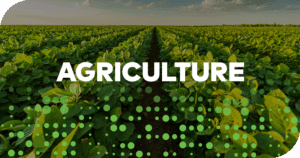Evolving Trends in Farmer Engagement: Navigating the Changing Grower Landscape

In recent years, the agricultural sector has undergone significant transformations, particularly in how grain traders interact with farmers and manage their grain supplies. For grain originators, understanding these shifts is crucial for maintaining competitiveness and fostering strong relationships with growers. This article explores the changing grower landscape, emerging trends in farmer engagement, and the growing importance of sustainability practices, particularly as carbon impacts become a standard consideration for farmers.
The changing face of agriculture
Next-generation growers bring new perspectives, technological savvy, and a heightened focus on sustainability.
The agricultural industry is experiencing a generational shift, with younger farmers increasingly taking the reins of family operations. According to the 2017 Census of Agriculture, the average age of U.S. farm producers was 57.5 years, with 27% of producers being categorized as new and beginning farmers. These next-generation growers often bring with them new perspectives, technological savvy, and a heightened focus on sustainability. For grain traders, this transition presents both challenges and opportunities in terms of engagement strategies and business practices.
Tech-savvy farmers and digital engagement
Today’s farmers are increasingly tech-savvy, relying on smartphones, tablets, and farm management software to run their operations. This digital proficiency has led to expectations for more streamlined, tech-enabled interactions with grain buyers. Successful grain traders are responding by:
- Enhancing and simplifying market tools that can be personalized to the needs of the producer
- Developing user-friendly mobile apps to allow for always-on access and use of digital communication channels like text messaging and social media for updates and notifications
- Implementing online grain bidding and selling platforms
By embracing these digital tools, grain traders can enhance their engagement with farmers, providing real-time information and convenient transaction methods that align with modern farming practices.
Sustainability and carbon considerations
Sustainability has moved from a niche concern to a central focus in agriculture, with carbon impact becoming a typical consideration for farmers. This shift is driven by a combination of environmental awareness, regulatory pressures, and market demands. For grain traders, this trend presents several important considerations:
Carbon markets and incentives
As carbon markets develop, farmers are increasingly looking for ways to monetize sustainable practices. Grain traders can play a crucial role in this ecosystem by:
- Facilitating connections between farmers and carbon credit buyers
- Offering premiums for crops grown using verified sustainable practices
- Providing education and resources on carbon sequestration techniques
By positioning themselves as partners in sustainability, grain traders can strengthen their relationships with environmentally conscious farmers and potentially access new revenue streams.
Traceability and certification
The demand for traceable, sustainably produced grains is growing, particularly among end consumers and food manufacturers. Grain traders who can provide robust traceability and sustainability certification for their supplies are likely to gain favor with both farmers and buyers. This may involve:
- Implementing advanced tracking technologies, likely with a partner in the space who specializes in data
- Collaborating with third-party certifiers to verify sustainable practices
- Developing sustainability-focused grain contracts that incentivize and reward eco-friendly farming methods
The power of data and insights
In the evolving agricultural landscape, data has become a critical asset. Grain traders who can effectively collect, analyze, and leverage data stand to gain significant advantages:
Market intelligence
Access to comprehensive market data allows traders to make more informed decisions about when to buy, sell, or hold grain. This intelligence can be shared with farmers to help them make better marketing decisions, fostering trust and loyalty.
Weather analytics
Advanced weather forecasting and analytics can help traders anticipate supply fluctuations and manage risk more effectively. Sharing these insights with farmers can also strengthen relationships and demonstrate value beyond simple price negotiations.
Behavioral analytics
By analyzing historical trading patterns and farmer behavior, grain traders can develop more targeted engagement strategies and personalized services, improving farmer satisfaction and retention.
Adapting to the new landscape
By positioning themselves as partners in sustainability, grain traders can strengthen their relationships with environmentally conscious farmers and potentially access new revenue streams.
For mid-level grain elevator operations and smaller agricultural grain trading businesses, adapting to these trends is essential for long-term success. Key strategies include:
- Investing in user-friendly digital platforms for farmer engagement
- Developing expertise in sustainability practices and carbon markets
- Building data analytics capabilities to derive actionable insights
- Fostering a culture of innovation and adaptability within the organization
By embracing these changes and positioning themselves as valuable partners to farmers in the new agricultural landscape, grain traders can ensure their continued relevance and success.
The Role of Trusted Partners
In navigating these complex trends and evolving farmer relationships, many grain traders are turning to trusted industry partners for support and guidance. DTN stands out as a leader in this space, offering unparalleled, proprietary agriculture insights that truly improve operations and deliver meaningful, measurable value across the agriculture value chain. With deep industry expertise serving many customers, DTN is helping unlock new value for its clients through advanced analytics and AI. As a trusted and independent partner for growers, ranchers, agribusinesses, and more, DTN is well-positioned to help grain traders thrive in the changing agricultural landscape.’
Discover how rich, robust proprietary information and analytical tools from DTN can transform your agribusiness strategy. Unlock the power of precise field-level forecasts, market insights, weather patterns, and industry trends.









 Comprehensive weather insights help safeguard your operations and drive confident decisions to make everyday mining operations as safe and efficient as possible.
Comprehensive weather insights help safeguard your operations and drive confident decisions to make everyday mining operations as safe and efficient as possible.